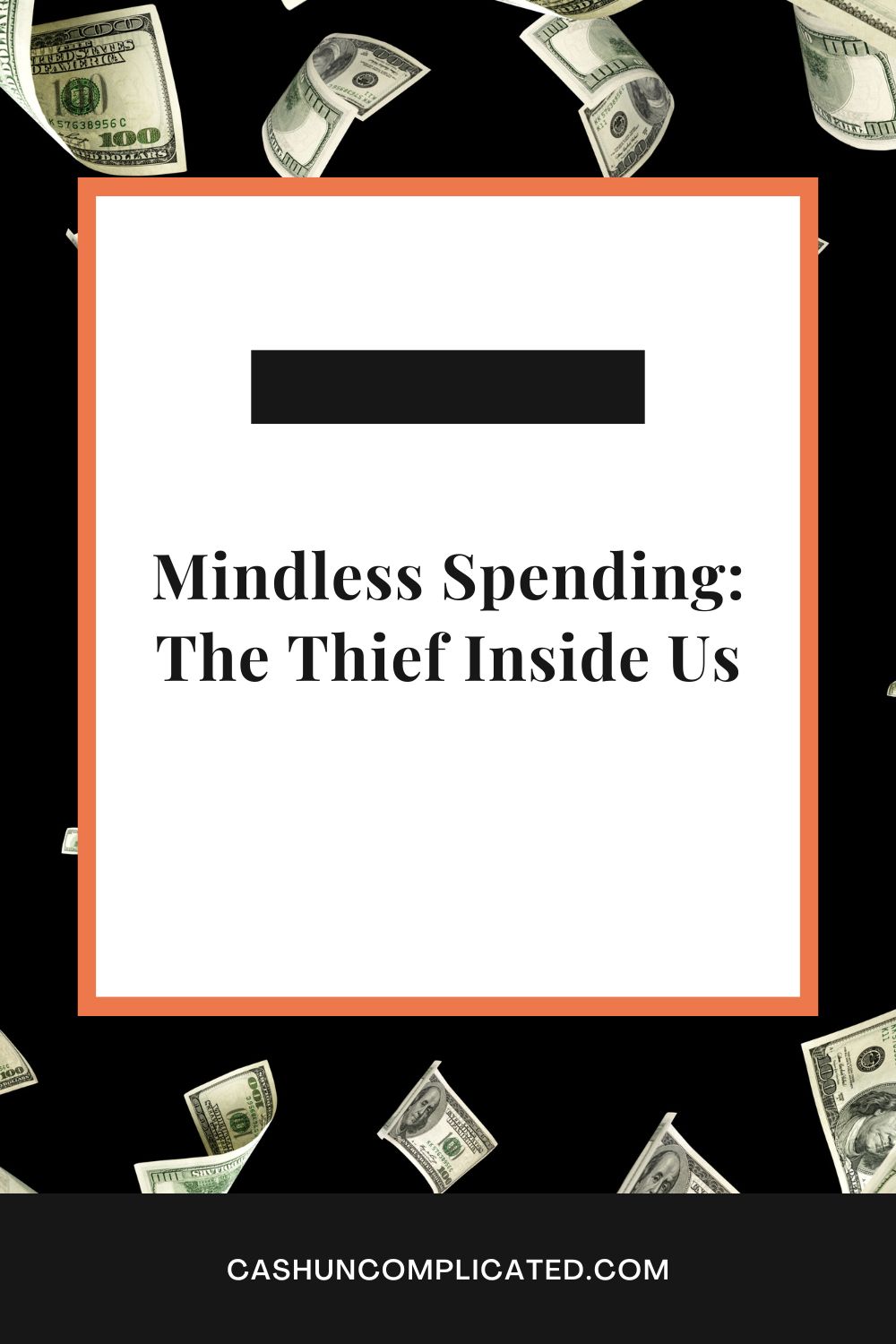I think at some point everyone is guilty of what I’m writing about today. I know I am. What I’m referring to is knee-jerk money reactions. No matter how disciplined or level-headed you might be, I think everyone is susceptible to this.
What Are Money Reactions?
Before we dive too deep into knee-jerk money reactions, it’s important to address the standard, run of the mill money reactions. These are just the normal, everyday life type of reactions we all have every day.
Things like the grocery bill is a little higher or lower than we expected. Not many people are going to react dramatically to that because it’s pretty standard. Or the water bill 10 dollars higher than the month before. Not something to be happy about, but nothing that would normally result in a big reaction.
What Are Knee-Jerk Money Reactions?
Knee-jerk money reactions involve the bigger expenses. A major car repair or unexpected large medical bill. Some other examples:
- Real estate prices in the local area falling
- New hot water heater
- Big drop in the stock market
- An unexpected major home repair
These are the big things that can easily trigger frustration and a knee-jerk reaction. The kind of things that initially feel like a big financial hit, especially if there isn’t a sizable emergency fund.
Related:
- Why the Pandemic Prompted Me to Increase My Emergency Fund
- The Broken Down Car and the Emergency Fund
Knee-Jerk Money Reactions and Solutions
There’s nothing wrong with initial knee-jerk money reactions. Something like a surprise major car repair can elicit a lot of frustration, irritation, and worry. So the initial reaction isn’t necessarily the issue, it’s what we do afterwards that counts.
These are some common knee-jerk money reactions and what we can do about them to minimize, or even avoid them altogether.
Number 1: Giving Up After One Negative Event
The heater goes out in the dead of winter and costs $1,500 to fix, the dog gets sick and requires an expensive trip to the vet, the car breaks down and is going to be over $1,000 to fix. These are all examples of negative events.
These events are going to happen. We can minimize the chances of them happening by doing things like scheduled maintenance, but they are going to happen. We can also keep an emergency fund, minimizing the sudden impact, but that doesn’t completely stop things from happening.
Since we all know that negative events are going to occur, it’s important to react to them appropriately. It’s easy to have a knee-jerk money reaction when something like this happens. Too many people give up after one negative event and it derails their whole day, week, month, or year.
One negative even isn’t going to make or break you. So take the negative events in stride and remember that this too shall pass. Don’t make a one-time event a permanent situation by your reaction to it.
Number 2: Panic Selling
The real estate or stock market drops. You watch as your net worth plunges. The knee-jerk money reaction is to panic sell–move out of the way of the falling knives.
But is this really a good idea? Research shows that many people actually buy high and sell low. Which is the exact opposite of what they want to do. We need to find a way to get out of our own way.
Here’s what happens. The market drops–people get nervous about watching their assets fall and they start selling. Then the market goes back up and people gain confidence and put money back in. Then when the market drops again, they pull money out and continue the cycle.
It’s the definition of buying high, selling low. Here’s how to minimize and even avoid this trap. When you’re in a good state of mind, look at the historical data. Even though past performance doesn’t predict future performance, it’s one of the best predictors currently available.
Develop a control plan for yourself when the market fluctuates. Then follow that plan when it actually does happen so that you don’t get involved in panic selling. And resist the temptation to look at the market every hour of the day.
Number 3: Stopping Learning
The third of the knee-jerk money reactions is to stop learning. Here’s a common scenario for many people. They spend a few years learning about how to improve their money situation and things aren’t going as well as planned, or there’s a big event like a stock market correction.
The initial reaction for a lot of people is to stop learning and abandon the plan. After all, what’s the point if the learning is getting you anywhere? Here’s the reality though–success isn’t a straight line.
There are going to be ups and downs, ebbs and flows. Eventually there will be results though, it just might be in a different timeframe from what you originally expected.
The one constant that everyone can control though is to keep learning and getting better. This principle always remains true through the good and not-so-good times. Plus, many of my greatest learning opportunities have come from my biggest failures, which ended up creating bigger and better opportunities.
Related: Zero Regrets: My Failed Attempt at Law School
Number 4: Frustration Spending
This happens to everyone, some more than others. Not everything is going to plan and frustration mounts. Then we start spending more than normal because the plan doesn’t seem to be working anyway.
I call this frustration spending, and it’s one of the biggest knee-jerk money reactions I see from people. Much like the last section, things don’t always go to plan. Frustration spending feels good at the time, but inevitably makes things worse.
So go back to your goals, your purpose, and your values. They will guide you away from frustration spending and help you get back on track towards the important things in your life.
Number 5: Not Stopping the Negative Momentum
Number five on the list of knee-jerk money reactions is not stopping the negative momentum. Sometimes it feels like we’re on a losing streak and nothing is going right. It’s easy to throw in the towel and give up.
There’s always a way to stop the negative momentum though. It’s always helped me to remember that the next decision, that one choice can end the negative momentum and start a new positive streak. It starts with one choice, as small as it might seem.
Here’s an example. Imagine a month in which your car broke down, your pet had a large vet bill and the house required a medium-sized repair. That’s a lot of money that month and it seems like an onslaught of bad luck.
Going out and spending a bunch of money on something to make you temporarily feel better sounds good at the time. But it just adds to the onslaught of expenses for the month. Choose to stop the momentum.
Reframe the “bad month” as a part of life that you’ve already accounted for with your emergency fund. You already planned for this and you are prepared–there’s no need to add to the negative momentum.
Number 6: Looking for the Quick Fix
When adversity strikes, one of the first reactions is to look for the quick fix. Unfortunately, there’s not always a quick fix. And if there is one, it’s likely not the best option. A few examples:
- The stock market drops by 20 percent (like it has this year)–taking all your money out will prevent future loss but it’s also taking money out at a loss and it doesn’t allow for future gains.
- Your car breaks and rather than fixing it correctly, you take it to a cheap third-rate mechanic who doesn’t fix it correctly.
- Someone who gets into credit card debt decides to buy $100 worth of lottery tickets hoping for a quick and easy win.
Sometimes the only solution is the long-term one. It’s great to be creative and attempt to find quick fixes but just make sure it’s not to your detriment. So be patient, develop a viable solution, and let the process play out.
Number 7: Blaming Others
Number seven on the list of knee-jerk money reactions is blaming others. The act of blaming others feel good temporarily because you are moving the accountability away from you onto another person, thing, or situation. Nobody likes to admit they screwed up so the blame-game feels good.
Blaming others is just a Band-Aid though and it doesn’t help in the long run. Plus, it takes away from the opportunity to learn and grow. Here’s an example–imagine losing $5,000 on an individual stock.
An acquaintance from the office gave you the stock tip so you decided to put down $5,000 on it. The stock did fine in the beginning, actually growing a little bit. But it slowly began to decline and the company has announced it’s going out of business, which means you’re going to lose your capital.
The easiest reaction would be to blame your co-worker.
- He was so confident and had already made money!
- It was a sure thing!
- He said it would be almost impossible to lose because of the new technology this company developed!
These are all blaming statements and there’s no growth in them, no learning opportunities. Instead of the knee-jerk money reaction, statements like these would be more helpful:
- I lost this time, but I won’t make that same mistake again.
- If I could do it again, I would have vetted the company better myself.
- In hindsight, I put more money into this company than I could afford, I won’t do that again.
Thoughts and statements like this will help you grow and avoid future mistakes. Not as easy as placing blame, but will help you in the long run.
Number 8: Repeatedly Changing Investment Strategies
Last, but not least, one of the easiest knee-jerk money reactions to engage in–changing investment strategies. Let me preface it by saying there’s nothing wrong with adjusting strategies. The problem becomes when you don’t give any strategy enough time to work.
For example, someone pulling money in and out of the stock market as the market fluctuates. We all know the market fluctuates–moving money in and out is not a recipe for success. You have to give it a chance.
Same thing goes for someone who is dollar-cost averaging. If their money is not growing as quickly as they had hoped after a year, it would be very unwise to pull all their money out and put it in a speculative investment.
There is power in picking a strategy and giving it time to work. That’s not to say we can never change, but we have to let time and compounding take their course.
Conclusion
It’s easy to have knee-jerk money reactions because they feel like you are accomplishing something. There’s activity and that activity feels like hard work. To quote John Wooden: “Never mistake activity for achievement.”
Knee-jerk money reactions feel like achievement but that’s just a feeling. The real results probably aren’t going to be very desirable if you make this a regular practice. So avoid the quick reactions by doing the research, formulating a strategy, sticking with it for a while, and keeping your emotions out of it.
How do you avoid knee-jerk money reactions?











